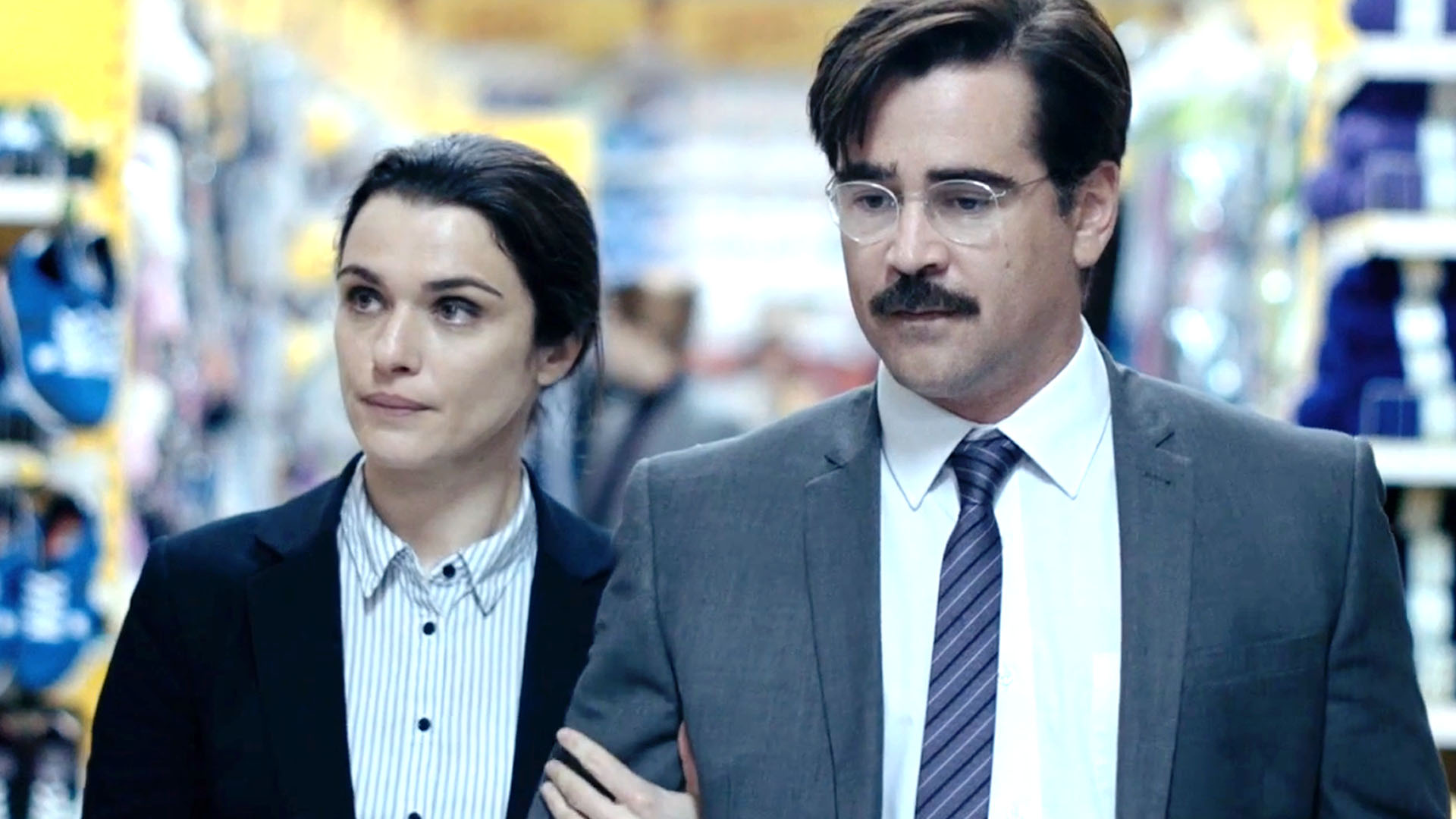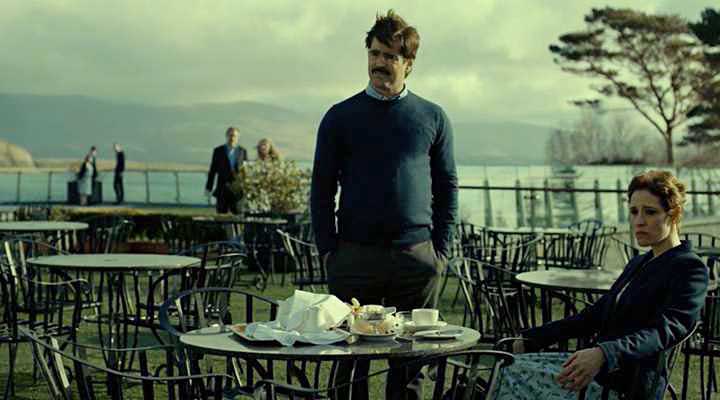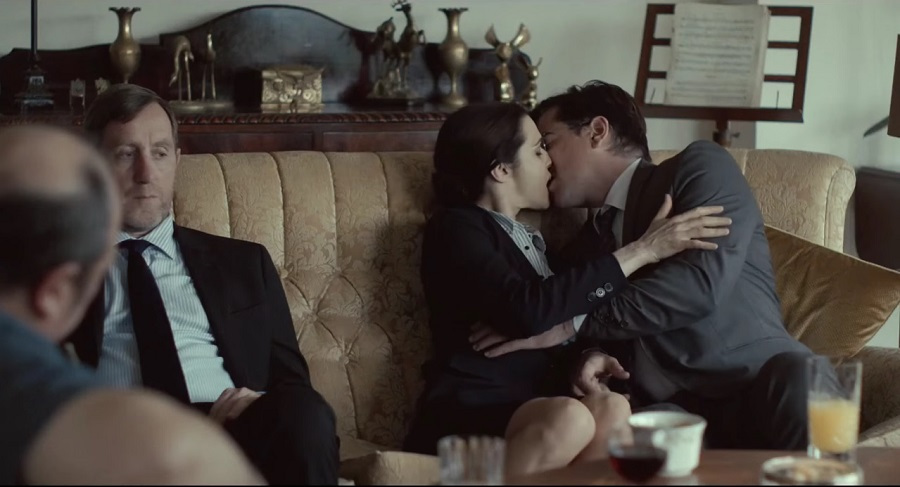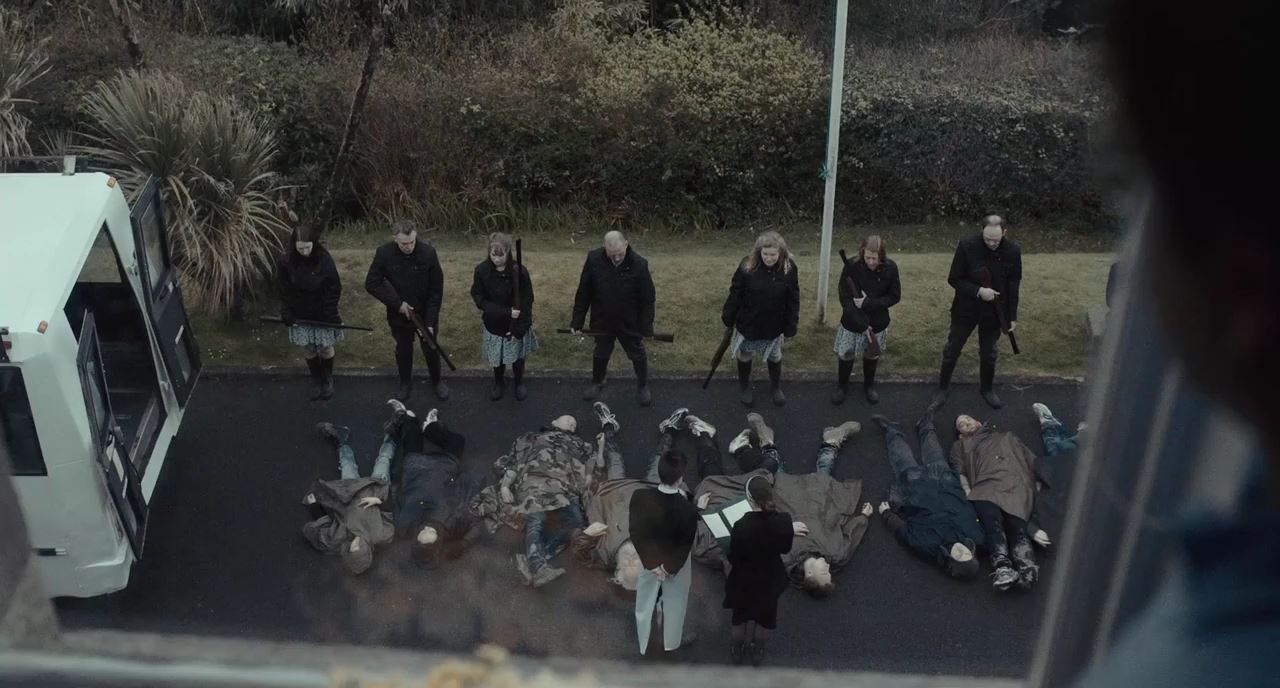
Yorgos Lanthimos’ dystopian comedy The Lobster imagines a future where single people are sent to a hotel to find a romantic match and if they don’t find that match within an allotted time, they are transformed into an animal of their choice.
While staying at the hotel, these singletons are subjected to various activities, shows, and lectures that emphasize the importance of finding a mate. Lanthimos’ satirical and mannered film has much to say about the way people form and break relationships, much of it cynical.
In addressing society’s stereotypical perceptions of single people, as well as those in relationships, The Lobster actually has many insightful and accurate things to say about the way humans view those around them.
In its distinct way, the movie sees through the false walls people put up around their true feelings and hidden agendas. It challenges the audience to understand their own biases, effectively pointing the finger at every viewer. Here are 5 insights into human relationships from The Lobster.
1. We often see people, even those close to us, through one defining characteristic instead of full individuals

Lanthimos’ film has a lot of shameful truths in its satirical sights. Each character in the hotel for loners has some sort of defining characteristic that is seen as their key to finding true happiness. And while it seems silly and shortsighted, it is the way that many people deal with relationships even today–be they romantic or platonic.
Connections are built on pop culture similarities, political affiliations, or sports fandom. Those these somewhat superficial (politics less so) connections are a part of the big picture, they are not the rock upon which to build solid relationships. Nor should they be the sole approach to judging others.
Those same small issues can be the fulcrum that pivots our perspective of everyone that surrounds us. With the rise of social media, interpretation of others–nay, snarky judgment of others–comes from one or two things they believe or like and, then, that is it.
Failing to see the big, holistic picture prevents people from forging meaningful friendships or romantic entanglements with others because the possible bridges between them have been burned prematurely. As the hotel manager in the movie states, somewhat condescendingly, “A wolf and a penguin could never live together. Nor could a camel and hippopotamus. That would be absurd.”
And though her cross-species analysis may technically be true, it speaks to a more widespread perceptional issue: compatibility is viewed through too narrow a lens. The majority of human beings have layers upon layers of interesting quirks and pieces; letting them pass through our lives without a second glance because of a perceived flaw could be an egregious mistake.
2. Often, we stay in relationships simply because we do not want to be alone

Though this insight has been elucidated myriad times in nonfiction and fiction, Lanthimos and his co-writer Efthymis Filippou approach the idea from both sides: couples stay together because they don’t want to be alone and society looks down on those who are.
The screenplay saves excessive ire for society’s often unsubtle discomfort with single people–again scolding viewers for judging so harshly. And the characters in The Lobster deal with societal pressure, yes, but moreso with their own attitude that they are somehow “less than” without a partner or an other half.
The metaphorical (and literal) examples that the hotel managers highlight to drum into the guests’ minds that they are nothing without someone else are hilarious but also accurate. The staff perform little plays to show that having a partner is safer, more fun, and much less lonely. (A woman is attacked when not with her husband, for example.) They even handcuff one hand of every guest when they first come into the hotel to metaphorically hammer home the point that things are much easier with two.
The movie-watching audience can laugh about the simplicity of the sentiment while realizing that they too have applied that pressure.
Each character in The Lobster is driven to extremes simply to escape the stigma of being alone (and being turned into an animal, of course). Colin Farrell’s David, for instance, pretends to be heartless and cringe-inducingly cold in order to pair off with a stoic, unfeeling woman. Ben Whishaw’s Limping Man literally bashes his face into things to pretend that he gets chronic nosebleeds in order to connect with a woman who suffers from that malady.
In each case, the man realizes that they are using subterfuge to make a connection, but the alternative is seen as impossible. They cannot be “whole,” in their minds, by themselves. Lanthimos knows–and we know–that to be alone, to wander the world individually, is a fine way to live. Somehow, though, when faced with that outcome, people have a tendency to panic and employ whatever means necessary to secure a mate.
3. Love is often based on things unrelated to affection and attraction

Again, Lanthimos’ movie can be described as cynical, no doubt. And 2017 is a much less romanticized time to live than many previous years. Nonetheless, The Lobster’s deconstruction of the idea of love itself and the way it coaxes the audience into admitting that love is something we often talk ourselves into, is sharp and fitting.
Here, each character is eventually confronted with the reality of why they are doing what they are doing. There are no grand gestures or bombastic declarations. In some ways, this film is the anti-romantic-comedy by simply zooming in on the actual machinations of romantic choices. As discussed above, the characters in the movie find partners through questionable choices, especially early in the story.
Eventually, once he escapes the hotel, David finds a lover in Rachel Weisz’s Short Sighted Woman. Their love is initially based on their shared vision issues, but blossoms into something more romantic and true. They must meet clandestinely to have an intimate relationship and they do, developing a silly but cute system of communicating without words.
But even here, Lanthimos calls the audience’s beliefs into question. Once the Short Sighted Woman is blinded late in the film, both she and David believe that their love has come to an end. They try to continue on, but the connection they forged feels somehow fake now.
The final ambiguous frames of the film, which leave us in suspense as to David’s actions, show him trying to get up the courage to blind himself, thereby making them a suitable match again. Their sexual relationship was real and fulfilling by all accounts, but that attraction and pure affection dissipates in the place of larger problems.
When David is forced into a huge demonstration of his love, they both see it as necessary to their continuing relationship. Thus love still needs those bombastic declarations and public demonstrations that populate formulaic romantic comedies and somehow supercede the happiness of day-to-day life.
The maddening (for some viewers) final moments of the film seem to suggest that love is more than what they had; love will be proved when David puts the knife to his eye. Such arbitrary requirements exist outside of attraction and affection and in the realm of fairy tale love, which is not present in our society–not truly–and Lanthimos knows it.
4. Society’s pressure exerts much more force on relationships than we like to admit

Though we like to pretend that we make decisions simply based on our feelings and logic, people too often yield to outside pressure in making decisions about familial and romantic relationships, choosing people and eliminating options based on how they would be perceived. However, those same people deny that those outside pressures have anything to do with their choices.
As the Limping Man continually injures himself to conjure up nosebleeds, he feels completely justified in his pairing because it frees him from the dismissive gaze of the other guests and the managers. Suddenly he is “right” again. In many ways, the hotel manager and her husband represent the withering gaze of society that shames people into finding a romantic partner.
The dirty secret that many repress, though, is that they then pretend it has nothing to do with those societal pressures. The pictures on Facebook, the messages on Twitter, they are all designed to trumpet the true love that has finally been found, even if the real reason for the relationship is escaping the judgments of all of your friends and family. (“When are you going to settle down?” “When is the last time you had a boyfriend?”)
David judges the Limping Man harshly when he lies to get his partner, but immediately does the same thing, afraid of loneliness but perhaps more afraid of the way he is viewed. Letting everyone around us know that we have found someone to be with lightens the perceived burden put on people by the community.
As long as there is some sort of connection or some reason to be together, people can buy time until they find something real. Anything to get out of that symbolic hotel for loners and onto the boat for couples who have found a way to imitate love, if only for a while.
5. It screams out about the lies, manipulations, and outright deceptions that dominate every relationship ever formed

Though this may seem a unapologetically pessimistic interpretation, Lanthimos uses his black comedy to shine a light on the recesses of human hearts. Nearly every person deceives in an attempt to continue a relationship or keep it from deteriorating. Many people hide that or try to paint it as something noble.
Lanthimos has no time for that. Here, every character ends up reaping what they sowed, so to speak. No one is spared from the ugliness of their lies. David’s brother (who is now a dog) is brutally kicked to death by his then-partner Heartless Woman. Limping Man must continue to bash his face but is also rewarded the indignity of his wife and “child” knowing that he has been lying.
Underneath every relationship in the movie is a hidden river of deceit inexorably flowing toward eventual discovery. The script has enough ambiguity to allow that these manipulations are not necessarily always bad. Perhaps sometimes they are borne of charitable reasons. Nonetheless, it highlights their obvious existence and the sometimes insidious motives behind them.
To claim that every relationship–even healthy and long-lasting ones–are built on a bedrock of falsehoods (or at least standing on a few bricks of misrepresentation) is a brash insinuation. However, the viewers of The Lobster, laughing and shaking their heads at the absurd events depicted, must inevitably accept the truth of those claims.
The power of The Lobster lies in its ability to put our motives under a microscope, figuring out how many of our close ties and connections come from pressures outside of ourselves or decisions based on superfluous things.
On an interview on the Blu-Rau/DVD for The Lobster, Lanthimos and Filippou state that they wanted to make a movie about love. They speak of the love story between Farrell’s David and Weisz’s Short Sighted Woman in fairly romantic terms, as do the cast. It is important to understand that, even in the midst of all of this heartache and cynicism, love and romance can still bloom. The movie just reminds its viewers that they need to approach all relationships with wide-open eyes, accepting the pitfalls and distortion that will accompany it.
Author Bio: Chad Durham is co-editor and contributing writer for RogueAuteurs.com. He also participates bi-monthly in the Rogue Auteurs podcast. His day job is high school English teacher. He has been in love with movies since seeing The Sting when he was 12. The thrill and emotion of seeing a great movie for the first time will always be one of his favorite feelings.